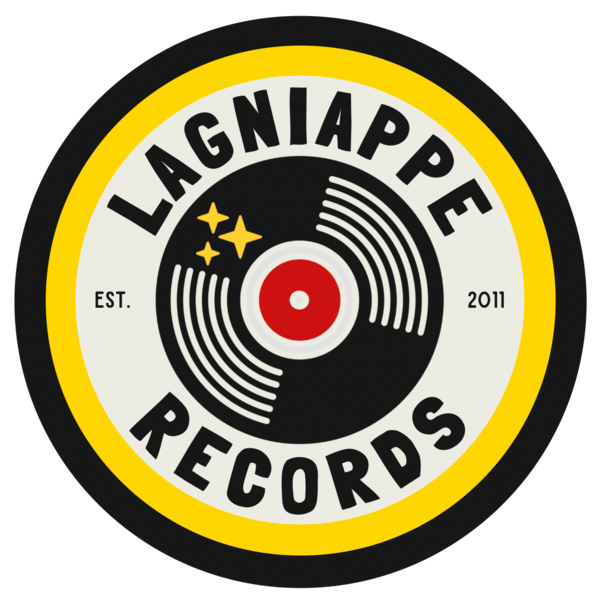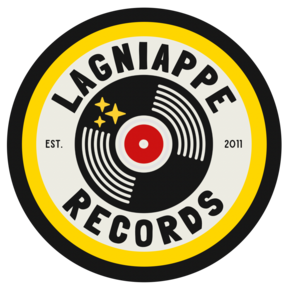LAGNIAPPE RECORDS
311-B Jefferson St. Lafayette, LA 70501
STORE HOURS
OPEN: Wednesday thru Saturday
12 p.m. - 6 p.m.
NOPE: Sunday, Monday & Tuesday

OPEN:
Weds. Thurs. Fri. Sat.
12pm to 6pm
CLOSED:
Sunday - Monday - Tuesday
Open to order online 24-7
select shipping
or
local pick-up!
Don’t expect these New Orleans Johnnys to don seersucker suits, bowties and boater straw hats like those blue bloods you envision strutting around the Garden District. But do count on a massive injection of tightly crafted, action-packed hybrid of rock ’n’ roll, blues rock, funk and a dollop of swamp pop that rarely hits pause, not even for a New York second.
Guitarist/vocalist Harry Barton writes from his trials, tribulations, and indulgences of being a Crescent City resident for 15 years. By his admission, he writes only 40 percent of his songs and then unveils them to fellow Johnnys, Andy Bower (sax), Phil Arpa (sax), Andrew Szypula (drums), and Rex Marshall (bass) who flesh out the hard-hitting, interactive arrangements.
Additionally, the songs never lose focus of their South Louisiana identity. Second-line beats are scattered throughout, and occasionally Jason Percle tinkles the ivories in the eloquent manner of piano legends Tuts Washington and Professor Longhair. On the groove-bound “Good People,” Barton salutes Anders Osborne, Mem Shannon, and The Lost Bayou Ramblers. “Don’t Wanna Dance” references Beau Jocque and zydeco dancing that’s set, ironically, to a slightly poppy yet novel ska motif.
Though it’s all pretty catchy and party-mood friendly, the title tune is one of several contending for the album’s most killer track with butt-bustin’ horns and jammin’ keys. Yet, it’s not all about throwing it down. Occasionally, Barton’s theatrical flair creeps in, as evidenced by “This Story” that feels like a tropical musical with its swaying ambiance and the interweaving of female vocalists.
“The Ballad of New Orleans Johnny” is even a better example of Barton’s inner-playwright. With spry Dixieland horns and rollicking, New Orleans piano, the miscreant protagonist arrives at the pearly gates, only to opt out of ‘saintly life’ and return—gasp!—to New Orleans where he’ll remain eternally, perhaps as part of a tourist ghost tour.
The album was produced by Charlie Wooton and engineered and mixed by Mike Harvey of NOLA Recording Studios.
Just as the New Orleans’ music community has given to Barton, he returns the favor by donating a portion of the limited-edition vinyl proceeds to the Jazz & Heritage Music Relief Fund, a worthy cause in this pandemic era.
STORE HOURS
OPEN: Wednesday thru Saturday
12 p.m. - 6 p.m.
NOPE: Sunday, Monday & Tuesday

Vinyl, Tapes, & Shit
*SEALED* Jacket still sealed in shrink original wrap; disc sold ungraded or "as is."
NM (Near Mint) Appears unplayed and will bear no marks, sleeve scuffs, or scratches.
EX+ (Excellent) May have one or two visible imperfections (i.e. sleeve scuffs, faint scratches, or other superficial marks) that will not affect playback.
VG+ (Very Good+) A few visible imperfections. These may include sleeve scuffs, light scratches, or other superficial marks.
VG (Very Good) Similar imperfections found on VG+ records but in slightly greater numbers. Records graded VG and above will typically not have any scratches that are deep enough to be felt with a fingernail.
VG- (Very Good-) A number of visible imperfections; the presence of a considerable number of light scratches will force a VG- grade, as will the presence of significant isolated defects such as scratches deep enough to be felt with a fingernail.
G (Good) Record can be played without skipping, but will have significant surface noise, scratches, and visible groove wear. G+ and G- are used to indicate stronger and weaker copies within this range.
*SW/DNAP* Slight warp, does not affect playback
*QUAD* Quadraphonic Sound, similar to today’s surround sound
All records are visually graded by our experienced staff, using a bright lamp and an Audio-Technica ATLP-120 turntable.